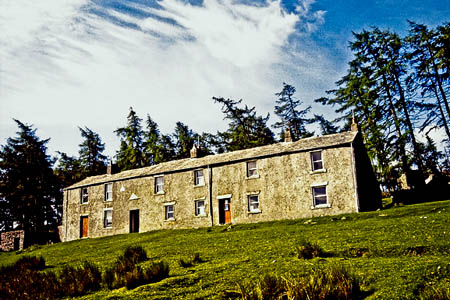
Skiddaw House
Britain’s highest youth hostel will be able to give its visitors a warmer welcome after the installation of solar energy.
Natural fleece insulation will also be added at Skiddaw House which, along with the roof panels will mean heating bills at the remote building should be reduced.
A £26,000 grant from the Lake District Sustainable Development Fund will help installation of the photovoltaic cells to charge the building’s batteries, along with interior wall lining at the former shepherds’ refuge, 460m (1,509ft), 2½km (1½miles) east of the 931m (3,054ft) summit of Skiddaw.
The hostel lies on exposed moorland above the River Caldew, 5km (3 miles) from the nearest road and is a popular halt for walkers.
Alfred Wainwright described the building as it then was in 1961, in the fifth volume of his Pictorial Guides to the Lakeland Fells. He said: “Skiddaw House is not a single residence, but a row of cottages in partial occupation by shepherds. The present shepherd in residence here (five days a week, with only his dogs for company) is Pearson Dalton of Fell Side.”
The hostel was originally built by the Earl of Egremont to accommodate his shooting parties. After Dalton’s retirement in 1969, the building slowly fell into disrepair but was taken under the Youth Hostel Association’s wing in the 1980s but by 2006 had again become derelict.
It subsequently reopened as an independent hostel under the control of the Skiddaw House Foundation.
The Sustainable Development Fund co-ordinator Clive Wickham said the scheme would ultimately have a big impact on heating bills and help secure the future of a much loved and well used hostel.
The fund has also given a £12,000 grant to Bassenthwaite’s Bassenfell Christian Outdoor Centre towards wood fuel heating and Ulpha village hall will also benefit to the tune of nearly £12,000 towards natural fleece insulation to help with an £85,000 major refurbishment.
The SDF has helped more than 470 community and environmental schemes with grants ranging from £40,000 to £50.
With £180,000 currently in the funding pot, it is particularly keen to support projects which have a climate change or renewable energy focus. Further information can be obtained from Mr Wickham on 01539 792661 or by emailing him.